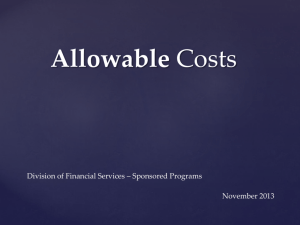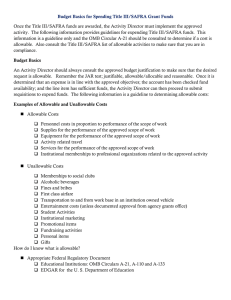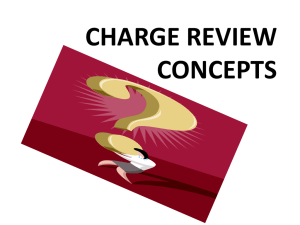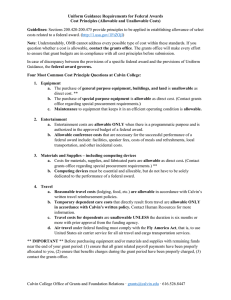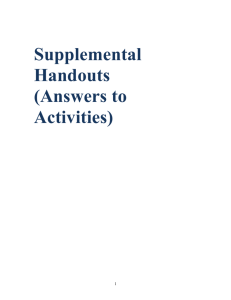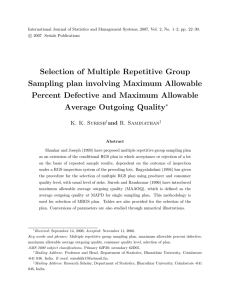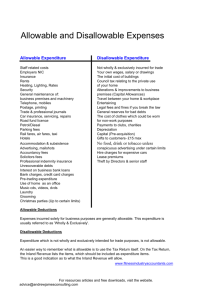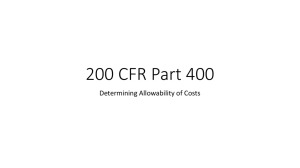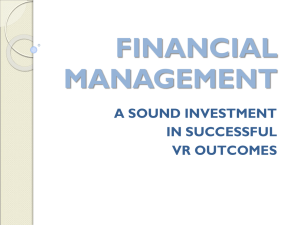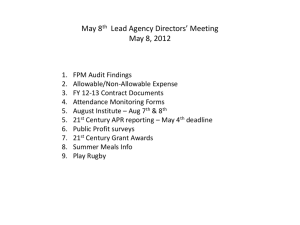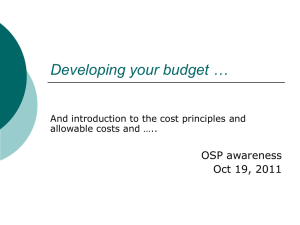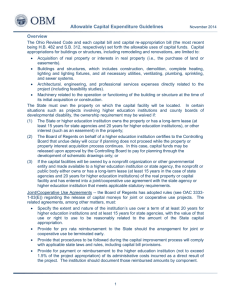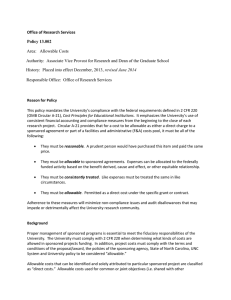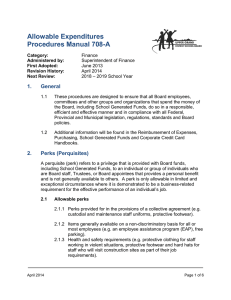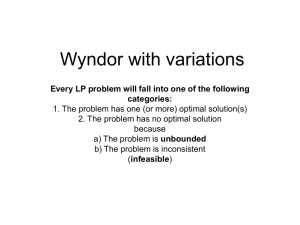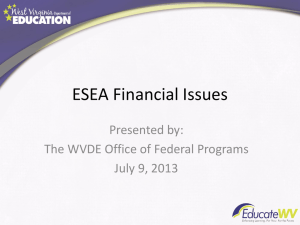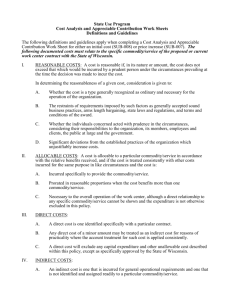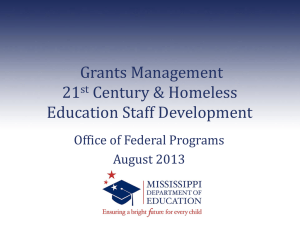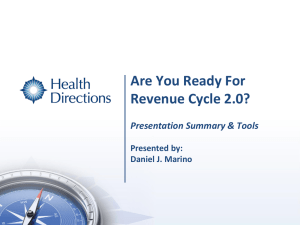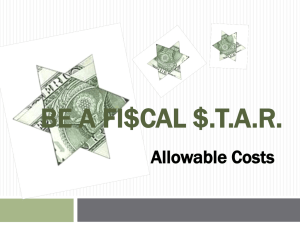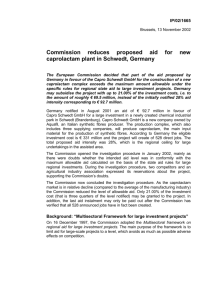HSI STEM & ARTICULATION PROGRAMS
advertisement
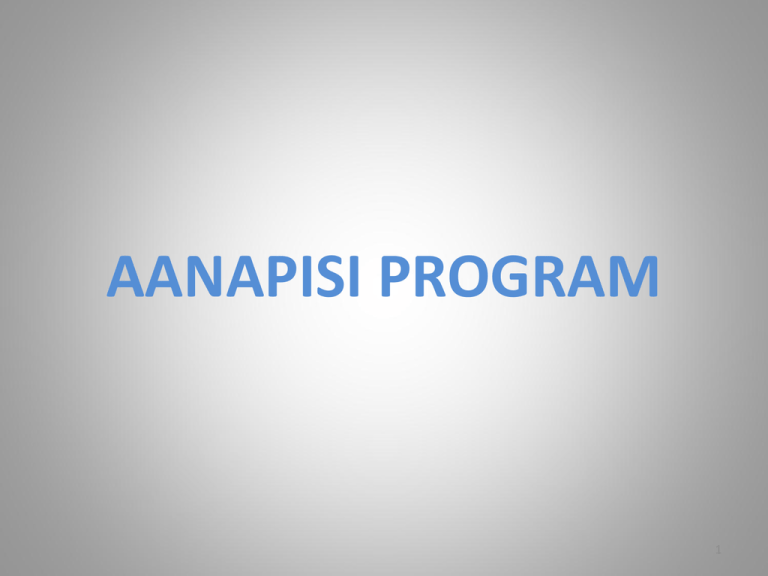
AANAPISI PROGRAM 1 AGENDA Authorization • Allowable Activities • Unallowable Activities • Compliance/Reporting • Successful Strategies • Questions 2 Authorization Authorization • SAFRA ACT – Title III, Part F – Mandatory Funding • TITLE III, Part A – Discretionary Grant Funding 3 FUNDING –2012 Part A - $3.1 million –2012 Part F - $5.0 million –2013 President Request for Minority Serving Institutions $20 million 4 Allowable Activities – Purchase, rental, or lease of scientific or laboratory equipment for educational purposes, including instructional and research purposes. –Renovation and improvement in classrooms, libraries, laboratories, and other instructional facilities. –Support of faculty exchanges, and faculty development and faculty fellowships to assist in attaining advanced degrees in the faculty‘s field of instruction. 5 Allowable Activities (cont’d) - Curriculum development and academic instruction. - Purchase of library books, periodicals, microfilm, and other educational materials. - Tutoring, counseling, and student service programs designed to improve academic success. - Funds management, administrative management, and acquisition of equipment for use in strengthening funds management. 6 Allowable Activities (cont’d) - Joint use of facilities, such as laboratories and libraries. - Establishing or improving a development office to strengthen or improve contributions from alumni and the private sector. - Establishing or improving an endowment fund. - Creating or improving facilities for Internet or other distance learning academic instruction capabilities, including purchase or rental of telecommunications technology equipment or services. 7 Differences in Key Activities Between Part A and Part F - Construction is allowable under Part F. - Research and data collection is allowable under Part A. - Establishing partnerships with community-based organizations are allowable under Part A. - Establishing community outreach programs targeted to elementary and secondary students to development academic skills to pursue postsecondary education is allowable under Part A. 8 Differences in Key Activities Between Part A and Part F (cont’d) - Establishing or improving a development office to solicit contributions from alumni and the private sector is allowable under Part F. - Creating or improving facilities for Internet or distance learning, including the purchase of rental of telecommunications technology equipment or services is allowable under Part F. 9 Sec. 607.10( c) UNALLOWABLE ACTIVITIES GRANTEES MAY NOT CARRY OUT THE FOLLOWING ACTIVITES OR PAY THE FOLLOWING COSTS • Activities not included in an approved application • Activities that are inconsistent with any State plan for higher education • Activities or services related to sectarian instruction or religious worship 10 Sec. 607.10( c) UNALLOWABLE ACTIVITIES (cont’d) • Activities provided by a school or department of divinity • Developing or improving non-degree or non-credit courses other than basic skills courses • Purchase of standard office equipment • Payment of any portion of the salary of a president, vice president, or equivalent officer who has college-wide administrative authority and responsibility at an institution to fill a position under the grant 11 Sec. 607.10( c) UNALLOWABLE ACTIVITIES (cont’d) • Activities that are operational in nature rather than developmental in nature • Costs of organized fund-raising, including financial campaigns, endowment drives, solicitation of gifts and bequests, and similar expenses to raise capital or obtain contributions • Costs of student recruitment such as advertisements, literature, and college fairs • Instruction in the institution’s standard courses 12 Sec. 607.10( c) UNALLOWABLE ACTIVITIES (cont’d) • Costs for health and fitness programs, transportation, and daycare services • Student activities such as entertainment, cultural, or social enrichment programs, publications, social clubs, or associations 13 COMPLIANCE/REPORTING Annual Performance Report (APR) – Complete, valid and reflective of the grant – Informative with substance – Meet the objectives for the reporting performance period – Serve at least 85% of the participants 14 COMPLIANCE/REPORTING COMPLIANCE Annual Performance Report (APR cont.) – All required staff hired – What impact has the grant had on the institution – Explain any carryover funds – Explain how carryover funds will be spent 15 COMPLIANCE/REPORTING Annual Performance Report (APR cont.) • Budget in the report should be consistent with the Department’s electronic records and the institution’s records • Submitted on time 16 COMPLIANCE/REPORTING COMMON MISTAKES IN REPORTING • Summary page – Repeating the same information each year • Lack of Reporting Accomplishments/Program Outcome • Program Profile page has incorrect information (Project Year and Unit ID) • Requesting of changes to the program • Duplicate Reporting (Graduation vs. Retention) 17 COMPLIANCE SUCCESSFUL STRATEGIES • Projects that address the needs of the target population (AANAPI) • Outreach Projects/Activities to area high schools • Projects/Activities that benefits the institution at large • Projects/Activities that can be institutionalize 18 QUESTIONS? 19

